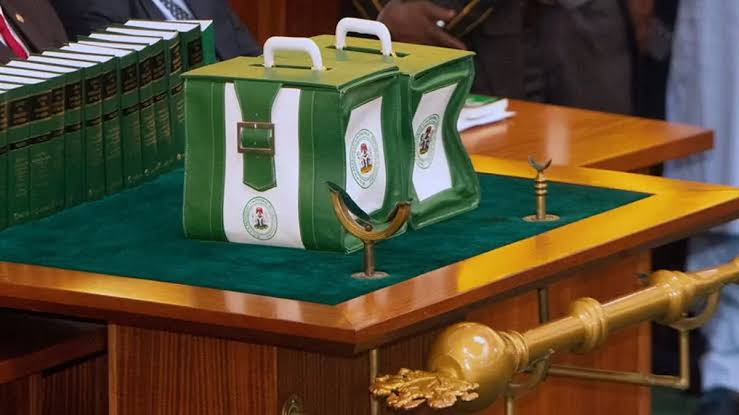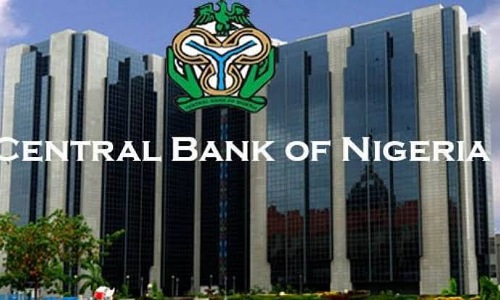Business
Africa private equity deals hit 5-year high of $1.6 billion in 2013 – report
NAIROBI – Sub-Saharan Africa attracted 1.6 billion dollars private equity investment in 2013.
This is the highest in five years, with the East Africa region experiencing the biggest increase in deal activity, a survey showed.
However, private equity funds focused on sub-Saharan Africa raised less money year-on-year.european-stock-exchanges
Eleven funds took in 922 million dollars, down 46 per cent from 2012, according to data from the Emerging Markets Private Equity Association.
As one of the world’s fastest growing regions, sub-Saharan Africa has caught the attention of private equity investors who have been encouraged by rising consumer spending.
Such investors also are attracted to natural resource discoveries in countries like Kenya, Uganda and Mozambique.
Given the limited number of listed companies and low liquidity in stock markets outside Johannesburg, Lagos and Nairobi, the asset class also offers investors greater exposure to fast-growing sectors.
Deals announced so far this year include an investment in J&J Africa, a Mozambique-based transport firm, by Carlyle Group and the asset management arm of South Africa’s Investec .
Standard Chartered also said in January, its private equity arm had taken a 13 per cent stake in Botswana-listed supermarket chain Choppies Enterprises.
The size of both deals was not disclosed.
The amount of capital invested by private equity funds in sub-Saharan Africa in 2013 represented a 43 per cent increase from the previous year, EMPEA said.
This contrasts with emerging markets as a whole, which saw a seven per cent year-on-year decline in capital flow to 24 billion dollars.
The sectors in sub-Saharan Africa which lured the most capital were energy and natural resources, with 833 million dollars invested, and banking and financial services, which drew 256 million dollars.
East Africa accounted for just over a third of the 74 deals completed in 2013.
The amount deployed to the region doubled to 769 million dollars, nearly half of the total capital invested in sub-Saharan Africa.
The region has become an investment hotspot after gas discoveries in Tanzania and Mozambique and other hydrocarbon finds in Uganda and Kenya.
One of the largest deals was a 600 million dollar investment led by Warburg Pincus in Delonex Energy, a central and east Africa-focused oil and gas exploration company launched in June.
Although fundraising declined in 2013, large sums had been raised in the past few years and were now being deployed, EMPEA said.
“In Sub-Saharan Africa, 2013 was the beginning of a big deployment phase for private equity capital.
Such deployment resulted in a drop in fundraising for the region but a five-year high for investment, said Robert van Zwieten, EMPEA’s chief executive.
“A large amount of capital was raised for the region in previous years, and now that capital is being put to work.”
He added that the prospects for 2014 were promising as six funds currently in the market with targets above 500 million dollars have a pan-Sub-Saharan African mandate.
“We anticipate 2014 to be an active year for fundraising in the region,” he said.
– NAN
Business
2025: Nigerian States Fail To Achieve 60% Budget Execution In 2024

A recent review of budget performance across Nigerian states has revealed that none managed to exceed a 60% execution rate between January and September 2024.
The underwhelming performance raises concerns about the states’ readiness to handle the ambitious budgets they have planned for the 2025 fiscal year.
From Katsina to Akwa Ibom, states struggled to meet their budget targets, with execution rates ranging from 26.9% to 55.1%.
The review highlights inefficiencies in fiscal planning, low internal revenue generation, and a reliance on federal allocations and borrowing.
READ ALSO: Archbishop Martins Champions Clamour For Better Life For Nigerians
Katsina State: Allocated N481.7 billion for 2024 but spent just N216.4 billion, representing 44.9% budget performance.
The state recorded an internally generated revenue (IGR) of N29.9 billion.
Jigawa State: With a budget of N383.5 billion, the state spent N174.8 billion (45.6%) and generated N18.4 billion internally.
Niger State: Budget execution stood at 30.4%, with N252.2 billion spent out of N829.4 billion. IGR was N29.2 billion, representing just 3.5% of the budget.
Abia State: Achieved 30.3% performance, spending N171.8 billion of its N567.2 billion budget, with IGR at N22.1 billion.
Anambra State: Spent N132.5 billion out of N410.3 billion (32.3%) and generated N28.2 billion internally.
Ondo State: Executed 52.3% of its N395.2 billion budget, spending N206.6 billion, with IGR at N24.4 billion.
Oyo State: Spent N210.9 billion out of N438.4 billion (48.1%), recording the highest IGR among reviewed states at N45.7 billion.
Bauchi State: Achieved 51.4% budget performance, spending N202.9 billion of its N394.8 billion allocation, while generating N15.9 billion internally.
Zamfara State: Executed 34.2% of its N426.5 billion budget, spending N145.8 billion, with IGR at N18.4 billion.
Adamawa State: Spent N154.8 billion out of N281.1 billion (55.1%) but generated only N9.1 billion internally.
Akwa Ibom: Recorded the lowest budget performance at 26.9%, spending N228.7 billion of its N849.9 billion budget. IGR stood at N41.4 billion.
Niger State’s fiscal performance stands out as a worrying case. Despite budgeting N829.4 billion for 2024, the state spent only N252.2 billion, relying heavily on federal allocations (N182 billion) and loans (N79 billion, covering 31.3% of expenditures). The state generated just N29.2 billion internally.
As Niger State plans to increase its budget to N1.5 trillion in 2025—a 48.3% rise from 2024—questions are being raised about its ability to finance such a massive appropriation.
Governor Mohammed Umaru Bago recently defended the state’s financial approach, claiming a 68.88% budget performance for 2024.
However, analysts have pointed out discrepancies in the state’s fiscal records.
“The numbers don’t add up,” said one analyst. “If Niger State relied on internally generated revenue alone, it would have achieved only 3.5% of its 2024 budget. The reliance on loans and federal allocations is unsustainable.”
The state’s fiscal challenges are not new. In 2023, Niger budgeted N473 billion but spent only N190.9 billion (40.3%).
It generated N18 billion internally, received N92.6 billion from the federation account, and borrowed N90 billion to bridge the gap.
The inability of states to execute their 2024 budgets effectively has raised doubts about their capacity to manage even larger budgets in 2025.
Fiscal experts are calling for a reassessment of budget planning and implementation processes to avoid deepening financial crises.
“There’s an urgent need for states to improve revenue generation and reduce dependence on loans,” said another expert. “Without these measures, achieving fiscal sustainability will remain a mirage.”
Business
CSOs Urge Further Reduction Of Pump Prices Of Petrol
Following the marginal reduction of the pump prices of premium motor spirit (PMS) by the Dangote Petroleum Refinery and the Nigerian National Petrol Company Limited (NNPC Ltd), civil society groups have reacted by calling for further downward review.
Recall that the Dangote Petroleum Refinery had announced a partnership with MRS Oil and Gas to offer petrol at N935 per litre at retail outlets, while it reviewed the ex-depot price from N970 to N899.50 per litre.
The move, saw state oil major, the Nigeria National Petroleum Company peg its retail prices at N965/litre.
ALSO READ: Dangote Partnership: MRS Urges Nigerians To Insist On N935/Litre Petrol Price Nationwide
However, the civil society groups are of the opinion that the price reduction, fall short of expectations.
According to the Chairman, Centre for Accountability and Open Leadership, Debo Adeniran, the reduced price of N935/litre was still expensive and unsatisfactory.
He pointed out that petrol was just one of the products coming out of crude and that both government and private business could still give out free petrol to citizens while making huge profits from the other products.
In his words, “Well, we believe that if NNPC and the private sector actually give out PMS for free, they will still not run their business at a loss, because the other derivatives of petroleum products can still serve them, and can still make them to break even. So, even at that N900 and something, it’s still expensive.
“Dangote has kind of mooted the idea that it could drop to as low as N650. And if he has mulled this, then it means that it is the state, it is the NNPC that will have been the clog in the wheel of such progress. And you know also that we expected that fuel prices, especially PMS prices, will drop below N200 when Dangote was expected to come on stream.
“So, it’s unfortunate that we are still talking about over N900 and they want us to jump up and rejoice for that. That is not satisfactory. They should just let us see the breakdown of their production cost and why it’s still there. I mean, there are countries like Libya under Gaddafi that gave out PMS for free and they didn’t run anything at any loss. So, I believe that it can still go further down.”
On his part, the Executive Director of the Civil Society Legislative Advocacy Centre, Ibrahim Rafsanjani, commended the reduction of fuel prices by the NNPC and Dangote, but said the government could still reduce the price.
“Dangote’s own is about N899 or something like that. Well first and foremost, we are happy that there is a little reduction in the prices. But also based on analysis and based on facts and evidences, we believe that it is possible for the Nigerian government to further reduce the prices.
“Because if a private company can reduce the price and it still makes profit, we wonder why government-owned enterprises cannot really pity its citizens,” he said.
Business
Non-Oil Sector Fuels Nigeria’s Q3 2024 GDP Growth, Says CBN

The Central Bank of Nigeria (CBN) has announced a significant growth in the country’s economy, with a 3.46% increase in gross domestic product (GDP) in the third quarter of 2024.
This marks the third consecutive quarter of expansion, up from 3.19% in Q2 2024 and 2.54% in Q3 2023.
According to the newly published Q3 economic report, Nigeria’s GDP output rose to ₦20.115 trillion, reflecting a notable improvement from ₦18.285 trillion in the previous quarter.
READ MORE: Tragic Funfair Crush In Ibadan Claims Children&’s Lives
The CBN attributed this growth primarily to the performance of the non-oil sector, which grew by 3.37% compared to 2.80% in Q2 2024.
The report highlighted transportation, crop production, and other sub-sectors such as financial & insurance services, information & communication, trade, and real estate as major contributors to the expansion.
The non-oil sector accounted for 3.18 percentage points of the total growth rate.
“The expansion of the non-oil sector was driven by the performance of the financial & insurance, information & communication, crop production, trade, transportation & storage, and real estate sub-sectors,” the report stated.
Despite the economic growth, challenges persist. Inflation, particularly in food prices, remains a significant concern, standing at 39.93% as of November 2024.
Rising food and energy costs have also impacted transportation expenses, with intercity bus fares increasing by 20.23% year-on-year to ₦7,117.17 in July 2024, according to the National Bureau of Statistics.
Furthermore, the cost of petroleum, now exceeding ₦1,000 per litre, has driven up logistics and transportation expenses, adding pressure to households and businesses alike.
The CBN acknowledged these challenges, noting that the growth was achieved despite headwinds such as high inflation and rising operational costs.
Enhanced security measures in the Niger Delta have boosted domestic crude oil production, while restrictive monetary policies have helped moderate inflation in some areas.
“The growth recorded in the country is a result of continued efforts to improve the business environment, streamline cumbersome business processes, and deepen the quality of business infrastructure,” the CBN noted.
However, the report comes amid concerns over businesses exiting Nigeria due to persistent economic challenges.











